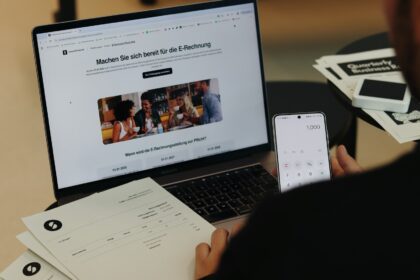Mastering budgeting techniques is the first step toward gaining independence in handling your finances. Tracking every expense for a month reveals spending patterns and highlights areas where adjustments can increase savings. Using simple tools like spreadsheets or free apps builds practical skills that make managing resources less intimidating.
Developing an understanding of credit scores and debt management strengthens your ability to maintain stability. Paying down high-interest debts before other obligations reduces financial strain and improves borrowing options. Setting clear priorities and timelines enables steady progress without feeling overwhelmed.
Investing knowledge also plays a key role in securing long-term autonomy over assets. Learning basic concepts such as compound interest, diversification, and risk tolerance helps create strategies tailored to individual goals. Regularly reviewing investments ensures alignment with changing circumstances while reinforcing confidence in decisions.
Ultimately, cultivating these competencies leads to greater authority over personal wealth. Each informed choice contributes to building resilience against unexpected challenges and opens opportunities for growth. Embracing responsibility through consistent practice transforms abstract ideas into real-world advantage.
Financial empowerment: taking control of money
To gain mastery over personal finances, the first step involves developing practical skills that enhance the ability to manage assets and liabilities effectively. Understanding budgeting methods such as zero-based budgeting or the envelope system allows for clear allocation of resources, thereby increasing self-reliance in handling economic matters.
Confidence in managing funds grows with familiarity of investment instruments and digital payment systems. For example, learning how decentralized finance (DeFi) platforms operate can provide an alternative to traditional banking, offering users greater autonomy by removing intermediaries and enabling direct peer-to-peer transactions.
Building expertise for financial independence
Acquiring knowledge about blockchain technology improves one’s proficiency in securing and transferring value securely. With cryptographic keys acting as access credentials to digital wallets, individuals must cultivate skills to safeguard these keys rigorously, thus preventing unauthorized access and maintaining full discretion over their holdings.
An illustrative case is the use of hardware wallets versus software wallets; while hardware devices like Ledger or Trezor offer offline storage resistant to hacking attempts, software solutions provide ease of access but require stringent cybersecurity practices. Selecting appropriate tools according to one’s risk tolerance exemplifies informed decision-making essential for financial autonomy.
- Skill development: mastering transaction verification processes
- Understanding: differences between custodial and non-custodial services
- Application: implementing multi-signature wallets for enhanced security
The transition from reliance on centralized entities to self-directed monetary management necessitates persistent education and practice. The confidence gained through repeated application of these concepts contributes substantially to reducing dependence on external financial institutions.
An ongoing challenge lies in balancing convenience with security when selecting technologies that manage funds independently. Users are encouraged to adopt a layered approach combining hardware protections, strong authentication protocols, and continuous learning about emerging threats.
The journey toward economic self-sufficiency benefits from incremental improvements: starting with basic budgeting tools, progressing through understanding digital currencies’ mechanics, and finally integrating advanced decentralized applications into daily transactions. This methodical progression ensures that each stage builds confidence while minimizing risks associated with unfamiliar technologies.
Creating a realistic budget
Start by listing all sources of income and categorizing regular expenses into fixed and variable costs. This clear segmentation helps allocate funds accurately, ensuring that daily living needs, savings, and discretionary spending are balanced effectively. Using spreadsheets or budgeting software can enhance transparency and provide up-to-date insights on financial status.
Developing skills in tracking expenditures is fundamental to maintaining an accurate budget. Automated tools linked to bank accounts or cryptocurrency wallets offer real-time monitoring, allowing users to identify unnecessary outflows quickly. For example, blockchain-based finance apps often feature transaction analytics that highlight spending patterns without compromising privacy.
Step-by-step approach to budgeting
Create a prioritized list of expenses reflecting essential commitments such as rent, utilities, loan repayments, and food costs. Next, assign specific amounts to each category based on past data and forecasted changes like seasonal variations or upcoming large purchases. This method supports achieving independence by preventing overspending and aligning expenditures with available resources.
Incorporate contingency funds into the budget for unforeseen events; allocating approximately 10% of total monthly income can provide a buffer against emergencies. Case studies from blockchain projects demonstrate that users who maintain emergency reserves experience less financial stress during market volatility phases, illustrating the practical benefits of preparedness.
- Track income inflows from diverse streams (salary, investments, freelance work)
- Record all expenses daily to detect deviations promptly
- Adjust allocations quarterly based on performance reviews
- Utilize decentralized finance platforms for transparent expense management
Regular evaluation of budgeting outcomes reinforces control over personal finances by highlighting areas where adjustments are necessary. For instance, reallocating funds from low-priority categories to savings can accelerate achieving long-term goals. This iterative process nurtures confidence and develops expertise in resource management.
This framework facilitates sustainable stewardship over assets by encouraging mindful allocation rather than reactive decision-making. Encouraging a mindset oriented towards gradual improvement helps solidify habits that underpin economic autonomy across varying circumstances.
Building an Emergency Fund
Allocating a specific portion of your resources into an emergency reserve is fundamental for achieving economic autonomy. Start by calculating essential monthly expenses and aim to accumulate savings that cover at least three to six months of these costs. This approach provides a buffer against unexpected events such as job loss, medical emergencies, or urgent repairs.
Developing budgeting techniques enhances your ability to allocate funds consistently towards this safety net. Utilizing automated transfers to a separate account can reduce the temptation to spend these reserves prematurely. Tracking inflows and outflows with digital tools increases transparency and reinforces disciplined habits needed for long-term financial stability.
Strategies for Effective Reserve Management
Skills in managing liquid assets become critical when constructing an emergency fund. Prioritize highly accessible instruments like high-yield savings accounts or money market funds, which offer minimal risk and reasonable returns while maintaining liquidity. Avoid allocating these reserves to volatile investment vehicles where principal value may fluctuate significantly.
Case studies demonstrate that individuals who systematically build their contingency funds experience reduced stress and quicker recovery during financial disruptions. For example, research from the National Bureau of Economic Research indicates that households with sufficient cash buffers rely less on high-interest credit options when unexpected expenses arise, preserving overall wealth.
Reducing and Managing Debt: Steps Toward Financial Autonomy
Begin by assessing all outstanding obligations with precise detail, listing balances, interest rates, and minimum payments. This structured overview allows for prioritization of debts that erode your financial standing most aggressively due to high rates or penalties. Establish a realistic repayment plan that targets these first, while maintaining minimum payments on others to avoid additional charges.
Developing proficient budgeting techniques is fundamental to gaining autonomy over personal finances. Tracking income against fixed and variable expenses reveals surplus funds that can accelerate debt reduction. Leveraging simple digital tools or spreadsheets can enhance this process, ensuring systematic allocation toward liabilities without compromising essential living costs.
Practical Strategies to Enhance Debt Management Skills
Debt Snowball vs. Debt Avalanche: The snowball method focuses on paying off the smallest debts first to build motivation through quick wins, whereas the avalanche approach prioritizes debts with the highest interest rates for cost efficiency. For example, a case study from a 2021 Consumer Finance report demonstrated that users of the avalanche strategy saved an average of 15% in interest payments compared to snowball adopters.
Consolidation Options: Combining multiple debts into a single loan with a lower interest rate can simplify repayments and reduce total costs. Peer-to-peer lending platforms utilizing blockchain technology now offer transparent terms and immutable records, enhancing borrower confidence by minimizing fraud risk and enabling smart contract enforcement.
Automated Payments and Credit Monitoring: Setting up automatic debits ensures timely settlements, which positively impacts credit scores–a key factor in securing better future borrowing conditions. Additionally, real-time credit monitoring services powered by decentralized finance (DeFi) protocols provide early warnings about changes in credit status or potential identity theft, fostering greater trust in managing obligations independently.
The acquisition of financial literacy significantly enhances confidence in handling liabilities. Educational programs combining case analyses with interactive simulations allow individuals to experiment with different repayment scenarios without real-world risk. For instance, blockchain-powered platforms simulate debt repayment paths incorporating fluctuating interest rates or unexpected expenses, aiding users to adapt plans dynamically.
Cultivating disciplined habits such as regular reviews of budget adherence and adjustments fosters sustained independence from recurring debt cycles. Encouragement through community support forums–often integrated within fintech applications–reinforces positive behaviors via shared success stories and practical advice exchanges, reinforcing belief in one’s capacity to manage resources effectively.
Conclusion: Strategic Long-Term Investment for Sustainable Growth
Consistent accumulation of assets through disciplined strategies significantly enhances one’s capacity to build wealth over time. Leveraging blockchain-based index funds or diversified portfolios that include tokenized real estate and DeFi protocols offers a practical path toward sustained growth while mitigating risk exposure.
Developing analytical skills to evaluate on-chain data, smart contract integrity, and protocol governance empowers investors with greater confidence in their decisions. This approach fosters autonomy by enabling individuals to manage resources without relying solely on traditional intermediaries.
Key Takeaways for Building Enduring Value
- Diversification across emerging crypto-assets and established tokens reduces volatility and provides multiple streams of potential returns.
- Continuous learning of blockchain mechanics and market signals improves timing and asset selection, increasing long-term yield prospects.
- Utilizing automated investment tools like algorithmic trading bots can optimize portfolio rebalancing, preserving gains amid shifting market dynamics.
- Participation in decentralized governance not only cultivates deeper understanding but also contributes to community-driven development enhancing asset sustainability.
The trajectory of decentralized finance indicates growing accessibility to sophisticated instruments once reserved for institutional players. By cultivating nuanced expertise and adopting innovative technologies, individuals gain independence in wealth generation and resource management. This evolution ultimately supports a more inclusive ecosystem where financial literacy translates into meaningful self-reliance and enduring prosperity.





